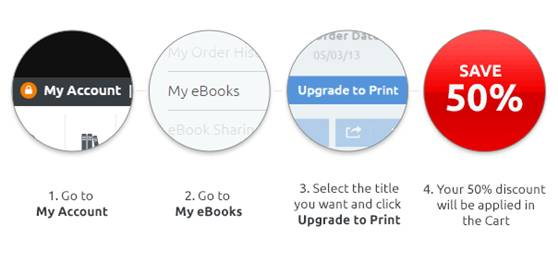We live in a time of relentless technological change, with the mantra of innovation lingering over our everyday experience – in our jobs and our private lives. But one technology has endured for more than half a millennium – the print book. As the world around us has changed, the print book has proven to be a reliable way for delivering and sharing stories.
The digital age has always looked like being the death knell for the print book. To a certain extent, you can trace the transformation of content alongside changes in the types of devices we use. Interactive, short, and easily digestible – these are the sort of things that seemed antithetical to the print book. Yet the pattern of disruption has somehow failed. Even as we have grown to love our Kindles and iPads (and we know many of you adore eBooks!), still print books show no sign of disappearing.
The New York Times noted that Digital books accounted for 20% of the market in 2014, ‘roughly the same as they did a few years ago’. This was a sign not so much that eBooks had failed to displace print, but more that sales had plateaued, neatly integrating into our consumption habits and lifestyles, rather than transforming them. Perhaps this shows that sometimes the next big thing isn’t always the best – a lesson for anyone working in tech, who lives their lives committed to innovation and improvement.
Arguably print books have never been more important. At a time when just about every interface we encounter is electronic, from the electric light that stares out at us as we work, to the connectivity we carry in our handbags and pockets, print books are an alternative interface that reminds us that there’s another world out there – that there’s another way to learn and explore new ideas.
If your computer and your mobile connect you, your print book disconnects you. It says: stop. I’m focusing on this for a minute; I’m focusing on me. It’s also that moment when you disconnect that problems look different and you can tackle them in a way you had never thought of before. Sometimes the answer isn’t going to be found by simply gazing at your IDE – you simply need to switch off, and withdraw into a book.
It’s easy to think that problem solving is all about connecting, talking, networking, but sometimes it isn’t. It’s about reading, thinking, and deliberating.
Print books don’t simply offer a way to solve a problem without a backlight – they also become material evidence of your ideas and experience. In our frameless and flat online world where everything is available at a few clicks of a button, it can be difficult to orient yourself – eBook collections can be great, but they can easily be submerged in the mountains of data on your hard drive, alongside the films you’ll never watch, the songs you’ll never listen to.
But it’s not just about those books you have read – it’s those print books in your library, however small, that are important too – they signal where you might go next, what skills you might learn. They let you visualize the future in a way that even your Packt account isn’t quite able to do (although we’re working on that…).
So if you want to take control of your skills, and your imagination, maybe it’s time to rethink the value of an old-fashioned print book. Here at Packt we’re dedicated to innovation, driven by what’s new, but sometimes even we have to concede that the old stuff is the best…
If you want to upgrade your Packt eBooks to print, it’s simple – and you can grab the print copy at half-price!
Simply follow these steps:











![How to create sales analysis app in Qlik Sense using DAR method [Tutorial] Financial and Technical Data Analysis Graph Showing Search Findings](https://hub.packtpub.com/wp-content/uploads/2018/08/iStock-877278574-218x150.jpg)